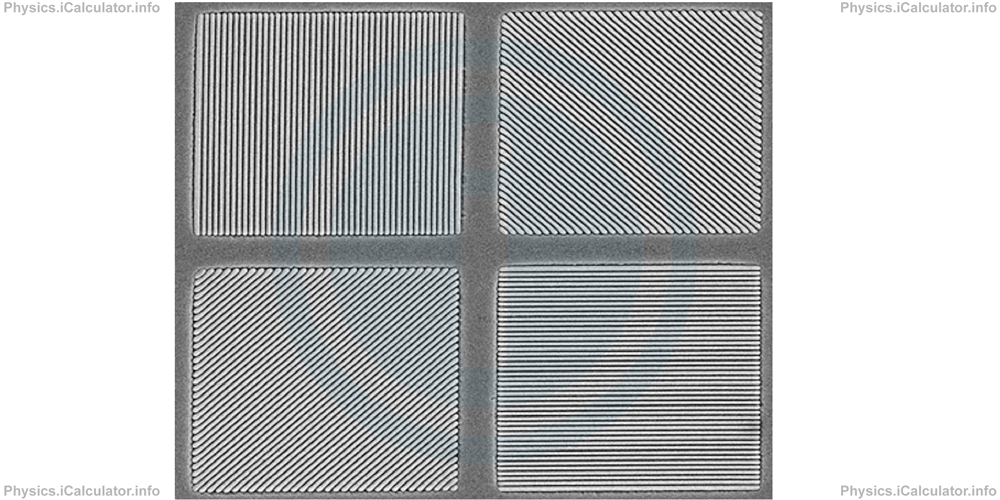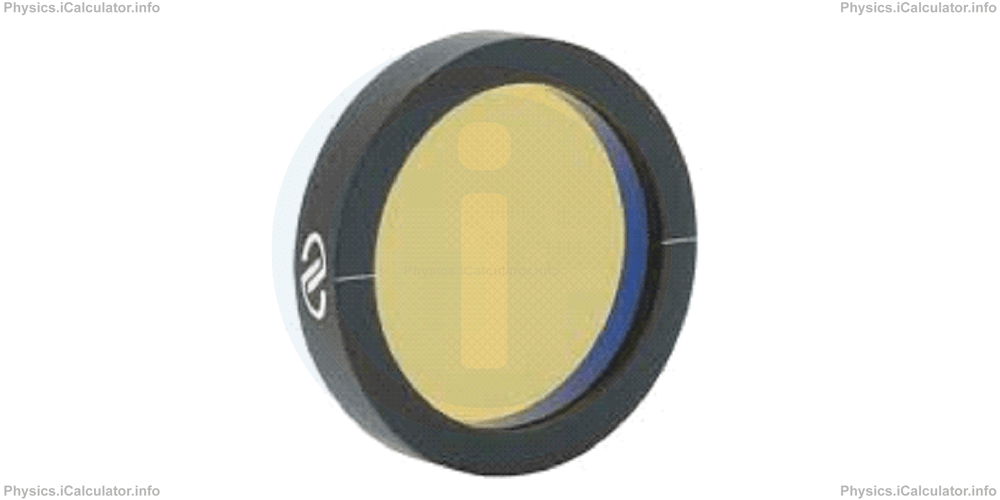Menu
Physics Lesson 12.6.5 - Types of Polarizers
Please provide a rating, it takes seconds and helps us to keep this resource free for all to use
Welcome to our Physics lesson on Types of Polarizers, this is the fifth lesson of our suite of physics lessons covering the topic of Polarization of Light, you can find links to the other lessons within this tutorial and access additional physics learning resources below this lesson.
Types of Polarizers
Polarizers are tools used to provide a specific polarization of light. There are three types of polarizers available: reflective, dichroic and birefringent.
Reflective Polarizers
Reflective polarizers provide polarization of the desired light while reflecting (blocking) the rest. Wire grid polarizers are an example of reflective polarizers. In wire grid polarizers, only the light whose electric vector is in the direction of grid lines is allowed to pass through while the light, whose electric vector is perpendicular to those grids, is blocked. Look at the figure in which a wire grid polarizer with four different directions of grid lines is shown.

Dichroic Polarizers
Dichroic polarizers absorb a specific polarization of light, transmitting the rest. Modern nanoparticle polarizers are examples of dichroic polarizers. The figure below shows a dichroic polarizer.

Most high quality polarized sunglasses in use today have dichroic polarized glasses. This is why only the incidence light is allowed to pass through them, not the reflected one.
Birefringent Polarizers
Birefringent polarizers operating principle is based on the refractive index of light. Given that different polarizations diffract at different angles, this property is used to choose specific polarizations of light.
Microscopy uses birefringent polarization, as it is very sensible to slight changes of light intensity caused by the elimination of a certain number of electric vectors depending on the situation.
You have reached the end of Physics lesson 12.6.5 Types of Polarizers. There are 6 lessons in this physics tutorial covering Polarization of Light, you can access all the lessons from this tutorial below.
More Polarization of Light Lessons and Learning Resources
Whats next?
Enjoy the "Types of Polarizers" physics lesson? People who liked the "Polarization of Light lesson found the following resources useful:
- Categories Feedback. Helps other - Leave a rating for this categories (see below)
- Optics Physics tutorial: Polarization of Light. Read the Polarization of Light physics tutorial and build your physics knowledge of Optics
- Optics Revision Notes: Polarization of Light. Print the notes so you can revise the key points covered in the physics tutorial for Polarization of Light
- Optics Practice Questions: Polarization of Light. Test and improve your knowledge of Polarization of Light with example questins and answers
- Check your calculations for Optics questions with our excellent Optics calculators which contain full equations and calculations clearly displayed line by line. See the Optics Calculators by iCalculator™ below.
- Continuing learning optics - read our next physics tutorial: The Doppler Effect
Help others Learning Physics just like you
Please provide a rating, it takes seconds and helps us to keep this resource free for all to use
We hope you found this Physics lesson "Polarization of Light" useful. If you did it would be great if you could spare the time to rate this physics lesson (simply click on the number of stars that match your assessment of this physics learning aide) and/or share on social media, this helps us identify popular tutorials and calculators and expand our free learning resources to support our users around the world have free access to expand their knowledge of physics and other disciplines.